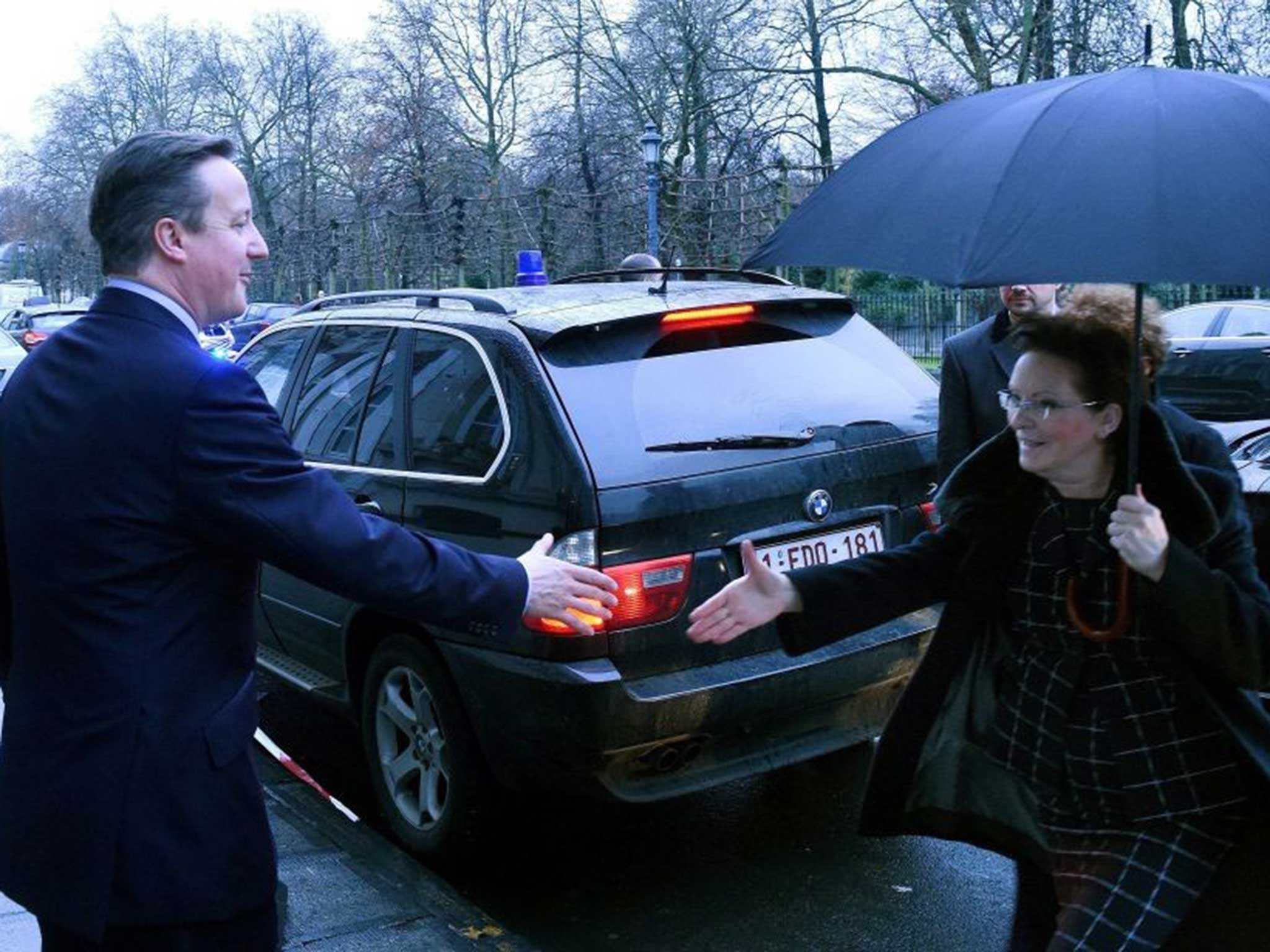Poland threatens to veto David Cameron's EU migrants benefits cuts plan
Poland's Deputy Foreign Minister: “There is a red line we cannot allow ourselves to cross"

Your support helps us to tell the story
From reproductive rights to climate change to Big Tech, The Independent is on the ground when the story is developing. Whether it's investigating the financials of Elon Musk's pro-Trump PAC or producing our latest documentary, 'The A Word', which shines a light on the American women fighting for reproductive rights, we know how important it is to parse out the facts from the messaging.
At such a critical moment in US history, we need reporters on the ground. Your donation allows us to keep sending journalists to speak to both sides of the story.
The Independent is trusted by Americans across the entire political spectrum. And unlike many other quality news outlets, we choose not to lock Americans out of our reporting and analysis with paywalls. We believe quality journalism should be available to everyone, paid for by those who can afford it.
Your support makes all the difference.Poland has warned that it will veto David Cameron's plan to curb benefits paid to EU migrants in Britain.
Writing in The Independent, Rafal Trzaskowki, Poland's Secretary of State for European Affairs, describes Mr Cameron's proposals as discriminatory, unfair and illegal under EU rules on the freedom of movement.
Poland's strong opposition is a big setback for the Prime Minister because reassuring the British public about EU migration will be a crucial aim when he negotiates a new deal for Britain ahead of an in/out EU referendum in 2017. The changes would require the unanimous support of all 28 member states. UK officials admit that some of the reforms would need a new EU treaty.
Mr Trzaskowski, Poland's Deputy Foreign Minister, declared: “There is a red line we cannot allow ourselves to cross and that is discrimination against EU citizens." He added: "The bottom line is, it is not the time for a treaty change, moreover, no such change is needed."
He insisted that EU migrants living in the UK contributed more to the country through their taxes than they took out in benefits. “Responsibilities come with rights, including access to social security benefits they are entitled to under the British and EU law…[Mr] Cameron could deprive them of rights guaranteed to them by the EU rules.”
Poland is influential in the EU as the biggest of the eastern European nations to join the bloc in 2004. Donald Tusk, Poland’s former Prime Minister, will try to broker a deal with Britain in his new role as President of the European Council, the 28 national leaders.
Mr Cameron met Ewa Kopacz, the current Polish Prime Minister, for talks today in the margins of an EU summit in Brussels. The 30-minute meeting focused on Ukraine and Russia and migration was not discussed.
In a speech last month, Mr Cameron proposed a four-year wait before EU migrants qualify for tax credits, child benefit and social housing, deporting EU jobseekers who have not found work within six months, and an end to child benefit payments to migrants whose children do not live in the UK.
Germany, the EU’s most powerful player, reacted sympathetically but France warned that there was no need for a new EU treaty. A French source said Britain was demanding a “higher and higher price” to keep it in the EU, but that France was not prepared to pay it.
Cameron allies insisted that last month’s speech was well received in Europe and that several key EU members want reform of the rules on migrants.
At the summit Mr Cameron accused MEPs of putting lives at risk by stalling an EU directive that would make it easier to track foreign fighters returning to the UK. Labour MEPs were among those who objected on data protection grounds to the proposed European passenger name system. It would allow EU nations to share information rather than strike separate deals with third countries.
Mr Cameron told other EU leaders at a working dinner: "It is wrong that we can get more information from countries outside the EU than from each other. There are three threats - returning fighters, airline plots and terrorists using air travel - and PNR is a simple way to protect ourselves from these. Quite frankly, the European Parliament is letting us down in terms of keeping our people safe."
The issue has been referred to the European Court of Justice, which is likely to delay a decision on the directive for a year.
Join our commenting forum
Join thought-provoking conversations, follow other Independent readers and see their replies
0Comments